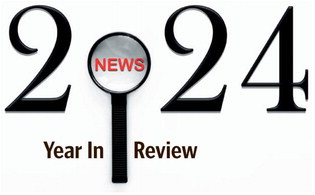Supreme Court Candidates Discuss Judicial Independence, Individual Rights


Judges need to stay independent and guard against partisan power-mongering — and they need to protect individual rights in the Montana Constitution, especially privacy.
Those were several themes raised by two candidates for the Montana Supreme Court discussed Monday, July 8, in Missoula at City Club with more than 100 people in the audience.
Jerry Lynch, former federal magistrate, and Judge Katherine Bidegaray both participated.
Lynch, running for chief justice, said the judiciary is under “extreme attack.” He said he is committed to fighting for the 1972 Montana Constitution for his children, grandchildren and future generations.
“They want to take over the court, not just in Montana but elsewhere, because it’s the last bastion against complete power,” said Lynch, of Butte.
Lynch touts 28 years of public service as a federal magistrate judge in the U.S. District Court of Montana, from 2006 to 2019.
He described those who want to take over as “the fringe element on the far conservative side,” but not the people in the middle.
However, he also said “one of the principal parties” in the state doesn’t want a “coequal” branch in the judiciary, as evidenced by a terminology change in their platform last week: “That will destroy our system as we know it.”
Lee Enterprises reported that the GOP removed the word “equal” to describe the judicial branch on a “strong” voice vote updating party platform principles. The Montana Republican Party could not be reached via voicemail for comment.
Lynch joked that after he told his wife he planned to run for chief justice, he asked her how she’d slept, and she told him “not worth a darn” because “I had a dream you were running for the Supreme Court.” Judge Bidegaray, running for an associate justice position, said Montana needs an experienced and nonpartisan judiciary. She said she would remain free from political pressure and stay impartial to give all Montanans equal treatment under the law.
“We’re living in times of unprecedented attacks on the judiciary, individual rights, particularly women’s rights, and the rule of law, each of which is key to a healthy democracy,” said Bidegaray of Sidney.
Bidegaray said she was inspired to fight for injustice after her father died and the federal government took the position that his death meant her family would default on a loan for their land even though they’d never missed a payment.
She helped her mom argue the government was possibly discriminating against the family — it wouldn’t have taken the same position had her mom died instead of her dad, she said. The government backed off, and they own the land today, Bidegaray said.
Bidegaray’s district covers Dawson, McCone, Prairie, Wibaux and Richland counties. She’s been elected four times as judge for district court and served since 2003, according to her campaign biography.
The Montana Supreme Court seats are open because Chief Justice Mike McGrath and Justice Dirk Sandefur are retiring.
Neither Cory Swanson, running for chief justice, nor Judge Dan Wilson, running for justice, attended the forum. However, in phone calls after the forum, both said they had previous engagements and pledged they also would remain independent.
Swanson said he couldn’t attend the forum because he was at a county attorneys’ convention; he’s currently the Broadwater County Attorney. However, he said his goal is to usher in a new era for court operations. He said he would advocate for resources to modernize the court and for more judges to meet caseloads, for instance. “I’ve said no one buys an outcome from me,” Swanson said.
Wilson, of Flathead County, said he doesn’t rule based on political considerations or influences, and he also doesn’t feel the need to fight back against alleged intrusions by other branches.
Rather, he said, he decides cases based on the facts and the law regardless of whether other branches try to exert control.
“That’s what I think is the winning recipe for maintaining judicial independence,” said Wilson, who noted he had previously scheduled his court calendar for the day.
Applause Monday came after Lynch emphasized women’s reproductive freedom as a privacy right protected by the Montana Constitution. However, Lynch said privacy extends far beyond women’s health care.
“People who don’t have ovaries, for instance, have to understand the right to privacy is much broader,” Lynch said.
In Montana, the right to an abortion is protected through the right to privacy in the 1999 court case, Armstrong vs. State of Montana. The Republican-led Montana Legislature has passed numerous bills to curtail abortion rights, but they have been blocked in court.
At the event, however, the City Club moderator asked both candidates about a different topic of state and national interest; he asked them to discuss the U.S. Supreme Court’s recent decision that overturned Chevron vs. Natural Resources Defense Council.
The 1984 ruling said courts must defer to federal agency expertise when considering legal challenges, and experts worry the reversal means agencies won’t get to rely on scientific experts when it comes to regulations.
Bidegaray said it doesn’t matter whether she agrees with the decision — once the U.S. Supreme Court speaks, she must honor her oath of office and follow the decision.
She said some people fear the decision means an agency’s power to protect consumers against the very entities they’re supposed to regulate will be “almost eliminated.”
However, Bidegaray also said cases can be evaluated through many different lenses, and creative litigants will find ways to argue the Chevron outcome isn’t applicable to their specific case.
“I will have to listen with an open mind,” Bidegaray said.
Lynch said as a citizen, he doesn’t believe the Supreme Court made a good decision, and as a federal judge, he reviewed many cases that came out of the administrative process with expertise from biologists, scientists, chemists and others.
“That decision is going to impact all of us in more ways than we understand,” Lynch said.
He said it places a burden on federal courts, which are already understaffed, underfunded and overworked, and he said state courts are in even worse shape.
He said the decision pulls out helpful scientific distillation in a case, and it speaks to a larger and “massive” problem.
“The destruction of the administrative state in the federal government is of grave concern,” Lynch said.
In his remarks, Lynch also took aim at the Montana Group, hired by his opponent Swanson. Lynch said the Montana Group is the “largest lobbying group in the state of Montana,” and he believes having a chief justice aligned with Big Pharma and extraction industries degrades the integrity of the judicial system.
“Let me just put it frankly: It’s not a good look,” Lynch said.
In a phone call, Swanson said he’s been friends with the Montana Group’s Chuck Denowh since college, they’ve ridden horses together, and Denowh was a groomsman at his wedding: “He’s the first person that I thought would make sense to help me out.”
At the same time, Swanson said, he’s insisted it’s a nonpartisan race.
Bidegaray said her parents grew up during World War II in occupied France, and they developed an appreciation for democracy and for the U.S. She said she’s running for the Supreme Court because she believes in democracy as well.
She said her opponent has accused her of having a political agenda, and she said she does have an agenda. However, Bidegaray said it is not political.
“My agenda remains clear: To protect the rights of all Montanans, to uphold the unique nature of our 1972 Montana Constitution, and to maintain a fair and impartial judiciary,” she said.
After the event, she said she would fight just as hard against efforts to influence the judiciary from the left as from the right.
Lynch, too, stressed through the forum that the independence of the judiciary is paramount, and he said it’s the top issue he hears about on the campaign trail. The others are protecting the Montana Constitution and individual rights, he said, and Bidegaray agreed.
But Lynch said the effort to diminish the judiciary is part of a national playbook, and it’s unfolding in Montana. He pointed to efforts to do away with Marbury vs. Madison, which set up judicial review of disputes between citizens and states, as an example, and he said it’s one that would yield dangerous consequences.
“If we lose the independence of the judiciary, democracy will follow,” he said.




